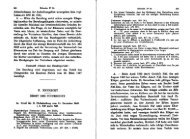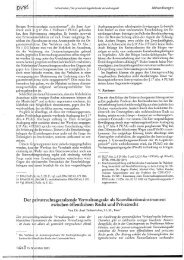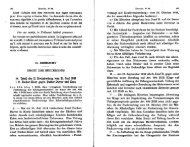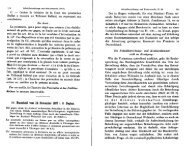Prozedurale Theorien der Gerechtigkeit - servat.unibe.ch
Prozedurale Theorien der Gerechtigkeit - servat.unibe.ch
Prozedurale Theorien der Gerechtigkeit - servat.unibe.ch
Erfolgreiche ePaper selbst erstellen
Machen Sie aus Ihren PDF Publikationen ein blätterbares Flipbook mit unserer einzigartigen Google optimierten e-Paper Software.
Die Übereinkunft ist als ein mehrstufiger Einigungsprozeß konzipiert 356 , auf dessen<br />
erster Stufe oberste <strong>Gere<strong>ch</strong>tigkeit</strong>sgrundsätze gewählt werden 357 . Der wie bei allen<br />
Sozialvertragstheorien hypothetis<strong>ch</strong>e und ni<strong>ch</strong>t-historis<strong>ch</strong>e Ausgangszustand 358 , <strong>der</strong><br />
sonst übli<strong>ch</strong>erweise 'Naturzustand' heißt, wird bei Rawls in deutli<strong>ch</strong>er Abgrenzung<br />
zu historis<strong>ch</strong>en Vorbil<strong>der</strong>n als 'Urzustand' benannt (original position) 359 . Bei diesem<br />
wird ni<strong>ch</strong>t na<strong>ch</strong> <strong>der</strong> Natur des Mens<strong>ch</strong>en und <strong>der</strong> Welt gefors<strong>ch</strong>t, son<strong>der</strong>n <strong>der</strong> Urzustand<br />
soll so bes<strong>ch</strong>affen sein, daß eine faire Vereinbarung daraus resultieren muß 360 .<br />
Ganz im Sinne <strong>der</strong> kantis<strong>ch</strong>en Grundposition soll dafür Unparteili<strong>ch</strong>keit erfor<strong>der</strong>li<strong>ch</strong><br />
sein. Um die Unvoreingenommenheit <strong>der</strong> hypothetis<strong>ch</strong> Beteiligten – <strong>der</strong> 'Parteien'<br />
(parties) – zu garantieren, nimmt Rawls ihnen dur<strong>ch</strong> einen 'S<strong>ch</strong>leier des Ni<strong>ch</strong>twissens'<br />
(veil of ignorance) die Kenntnis ihrer eigenen natürli<strong>ch</strong>en Eigens<strong>ch</strong>aften und Dispositionen<br />
sowie ihrer Stellung in <strong>der</strong> Gesells<strong>ch</strong>aft 361 .<br />
Auf dieser Grundlage konkretisiert Rawls sein Modell einer prozeduralen <strong>Gere<strong>ch</strong>tigkeit</strong>stheorie<br />
<strong>der</strong> kantis<strong>ch</strong>en Grundposition 362 . Die <strong>Gere<strong>ch</strong>tigkeit</strong>sgrundsätze<br />
seiner Theorie sind genau deshalb ri<strong>ch</strong>tig, weil sie das Ergebnis einer autonomiewahrenden<br />
Prozedur sind. Denn die Parteien des Urzustandes wählen die <strong>Gere<strong>ch</strong>tigkeit</strong>sprinzipien<br />
in einer geda<strong>ch</strong>ten Situation, in <strong>der</strong> sie unparteiis<strong>ch</strong>, frei und glei<strong>ch</strong><br />
sind. Zwar kennen sie die Bedeutung bestimmter gesells<strong>ch</strong>aftli<strong>ch</strong>er Grundgüter<br />
(primary social goods: politis<strong>ch</strong>e Re<strong>ch</strong>te und Freiheiten, Lebens<strong>ch</strong>ancen, Einkommen,<br />
Vermögen und Selbsta<strong>ch</strong>tung 363 ), wissen um die Lebensbedingungen mo<strong>der</strong>ater<br />
nämli<strong>ch</strong> sol<strong>ch</strong>en, die Verhandlungsma<strong>ch</strong>t, Drohung, Gewalt, Zwang, Täus<strong>ch</strong>ung o<strong>der</strong> Betrug im<br />
Rahmen <strong>der</strong> Ausgangspostition des Vertragss<strong>ch</strong>lusses zulassen. Siehe im einzelnen ebd., S. 23.<br />
Vgl. im Gegensatz dazu die ursprüngli<strong>ch</strong>e Stellungnahme: J. Rawls, Theory of Justice (1971), Preface,<br />
S. viii: »What I have attempted to do is to generalize and carry to a higher or<strong>der</strong> of abstraction<br />
the traditional theory of the social contract as represented by Locke, Rousseau, and Kant.«<br />
356 Zur 'four-stage sequence' siehe J. Rawls, Theory of Justice (1971), § 31, S. 195 ff.; nur die erste Stufe<br />
wird von Rawls ausführli<strong>ch</strong> inhaltli<strong>ch</strong> behandelt, die an<strong>der</strong>en finden si<strong>ch</strong> nur angedeutet.<br />
357 Zu den <strong>Gere<strong>ch</strong>tigkeit</strong>sprinzipien J. Rawls, Theory of Justice (1971), §§ 10 ff., S. 54 ff.<br />
358 J. Rawls, Political Liberalism (1993), S. 24: »[I]t is clear that the original position is to be seen as a<br />
device of representation and hence any agreement rea<strong>ch</strong>ed by the parties must be regarded as<br />
both hypothetical and nonhistorical.«<br />
359 J. Rawls, Theory of Justice (1971), § 4, S. 18; §§ 20 ff., S. 118 ff.; <strong>der</strong>s., Political Liberlism (1993), S. 23:<br />
»Here we face a difficulty for any political conception of justice that uses the idea of contract,<br />
whether social or otherwise. The difficulty is this: we must find some point of view ... The original<br />
position ... is this point of view.« Außerdem: ebd., S. 26: »The original position serves as a mediating<br />
idea by whi<strong>ch</strong> all our consi<strong>der</strong>ed convictions, whatever their level of generality ... can be<br />
brought to bear on one another.«<br />
360 J. Rawls, Theory of Justice (1971), § 3, S. 12; <strong>der</strong>s., Political Liberalism (1993), S. 22 f.<br />
361 J. Rawls, Theory of Justice (1971), § 24, S. 136 ff.; <strong>der</strong>s., Political Liberalism (1993), S. 23: »[T]he veil<br />
of ignorance ... must eliminate the bargaining advantages that inevitably arise within the background<br />
institutions of any society from cumulative social, historical, and natural tendencies. These<br />
contingent advantages and accidental influences from the past should not affect an agreement<br />
on the principles that are to regulate the institutions of the basic structure itself from the present<br />
into the future.« Außerdem: ebd., S. 27: »We can, as it were, enter this position at any time simply<br />
by reasoning for principles of justice in accordance with the enumerated restrictions on information.«<br />
362 Dazu oben S. 199 (D 4K ).<br />
363 J. Rawls, Theory of Justice (1971), § 15, S. 90 ff.<br />
201



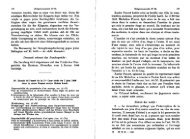
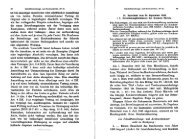
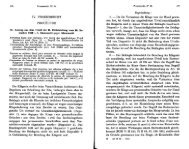
![Seminararbeit [Masterarbeit] - servat.unibe.ch - Universität Bern](https://img.yumpu.com/26241815/1/184x260/seminararbeit-masterarbeit-servatunibech-universitat-bern.jpg?quality=85)
